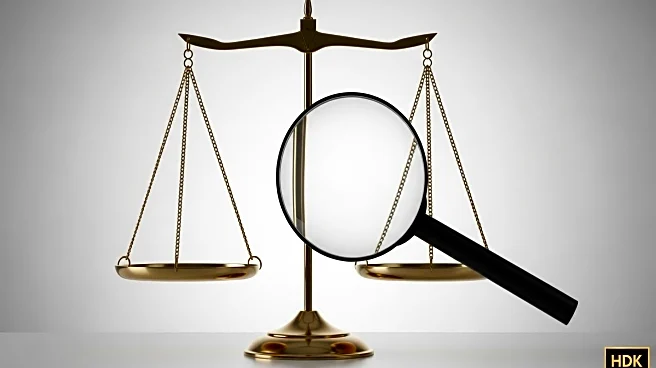What's Happening?
Former LSU Tigers standout and NFL veteran Ryan Clark has publicly addressed new developments in the case involving former LSU wide receiver Kyren Lacy. During ESPN's 'Monday Night Football,' Clark utilized his platform to discuss the recent revelations surrounding Lacy's legal situation. Lacy, who was previously under investigation, has been cleared of charges, prompting Clark to emphasize the importance of acknowledging Lacy's innocence. Clark's comments come in the wake of widespread media coverage that had previously focused on Lacy during the investigation phase.
Why It's Important?
The public acknowledgment of Kyren Lacy's innocence by a prominent figure like Ryan Clark highlights the broader issue of media coverage and public perception in legal cases. Clark's remarks underscore the potential impact of media narratives on individuals' reputations, particularly in high-profile cases involving athletes. This situation also reflects the responsibilities of media and public figures in ensuring balanced reporting and the importance of addressing inaccuracies once new information emerges. The case serves as a reminder of the potential consequences of premature judgments in the court of public opinion.
What's Next?
As the situation develops, it is likely that there will be further discussions on the role of media in shaping public perception, especially in legal matters involving athletes. Stakeholders in sports media may consider revising their approaches to reporting on ongoing investigations to prevent similar situations in the future. Additionally, there may be calls for more comprehensive media guidelines to ensure fair and accurate coverage of legal cases.
Beyond the Headlines
This case could lead to a broader conversation about the ethical responsibilities of media outlets and commentators in reporting legal matters. It may also prompt discussions about the potential need for reforms in how media handles cases involving public figures, particularly in sports. The incident highlights the delicate balance between the public's right to know and the rights of individuals to a fair and unbiased portrayal.









